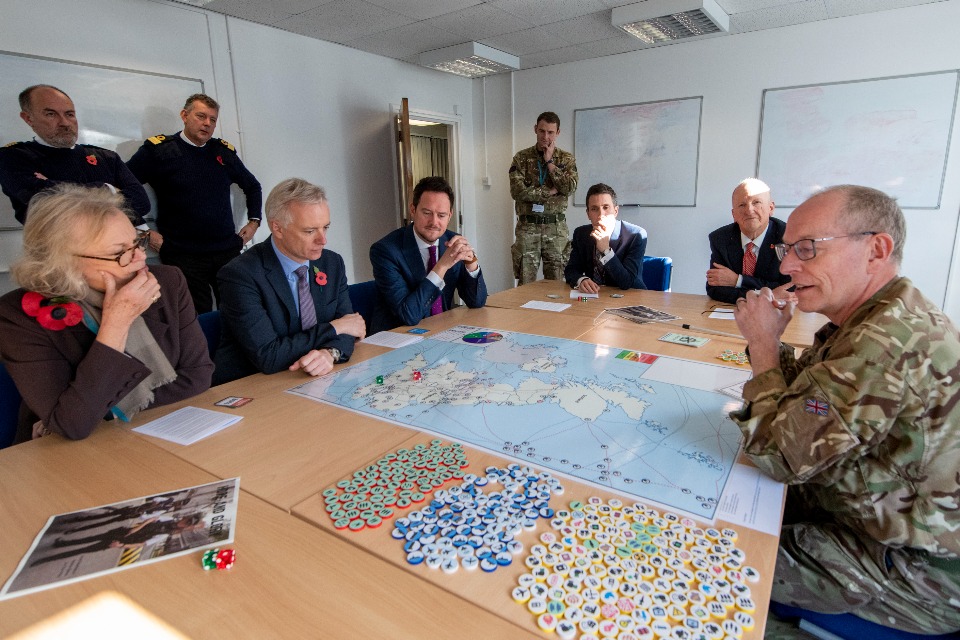In an ever evolving and complex world, where threats and challenges continually reshape the landscape of defence and security, wargaming remains a vital tool for military strategists and policymakers.
Taking place in safe-to-fail environments, wargaming is a structured way of simulating testing military scenarios. This approach enhances Defence preparedness while developing strategic thinking and encouraging innovation.
Members of the Armed Forces Parliamentary Scheme (AFPS) recently visited Southwick Park, spending time at Strategic Command's Wargaming Hub to learn first-hand how beneficial wargaming can be to individuals and Defence.

Members of the Armed Forces Parliamentary Scheme taking part in a Wargaming exercise.
Operating alongside wider government partners, academia and allies, the Wargaming Hub uses cutting edge technology, data and analytics to visualise different threat environments which informs strategic decision-making and promotes wider Defence-level experimentation.
Hosted by Director Joint Warfare, Rear Admiral Andrew Betton OBE and Head of Warfare Development, Commodore Christopher Goodsell RN, the attendees were first given a tour of the Wargaming Hub, developed by Strategic Command and DSTL.
The visit also included participating in three wargames:
- Adapted Section Commander: simulation of military conflict at the tactical level using vehicles and units.
- Contested: exposed attendees to high-level military/strategic decision-making.
- Hope and Glory: was focused on building resilience in response to UK extremist groups and external interference in critical national infrastructure.
Rear Admiral Andrew Betton, Director Joint Warfare said:
I was delighted to host members of the Armed Forces Parliamentary Scheme at the new Defence Wargaming Hub at Southwick Park.
During their visit they experienced some of the specialist wargames Defence uses to train personnel to be better decision-makers. They were also briefed on a series of strategic wargames designed to inform high-level Defence decision-making.
Drawing on Southwick Park's heritage as General Eisenhower's planning HQ for D-Day and the historic Map Room, the day was rounded off with analysis of how wargaming influenced the successful outcome.
To gain greater appreciation of the history of wargaming, members of AFPS toured D-Day Map Rooms, seeing how wargaming has evolved and incorporates traditional techniques with modern technology.
From this experience, the members of the AFPS left with a greater understanding on Strategic Command's role in sharpening defence's edge and the continued benefits of wargaming as we strive to maintain an advantage over our adversaries.






